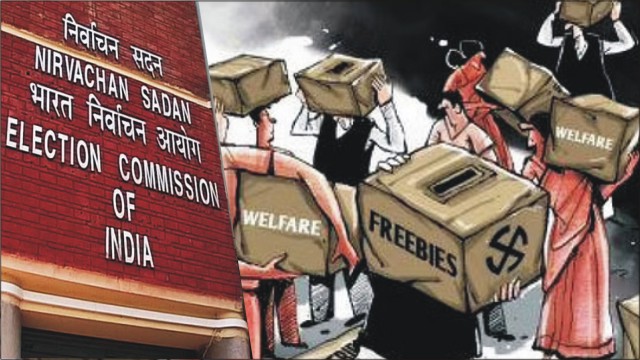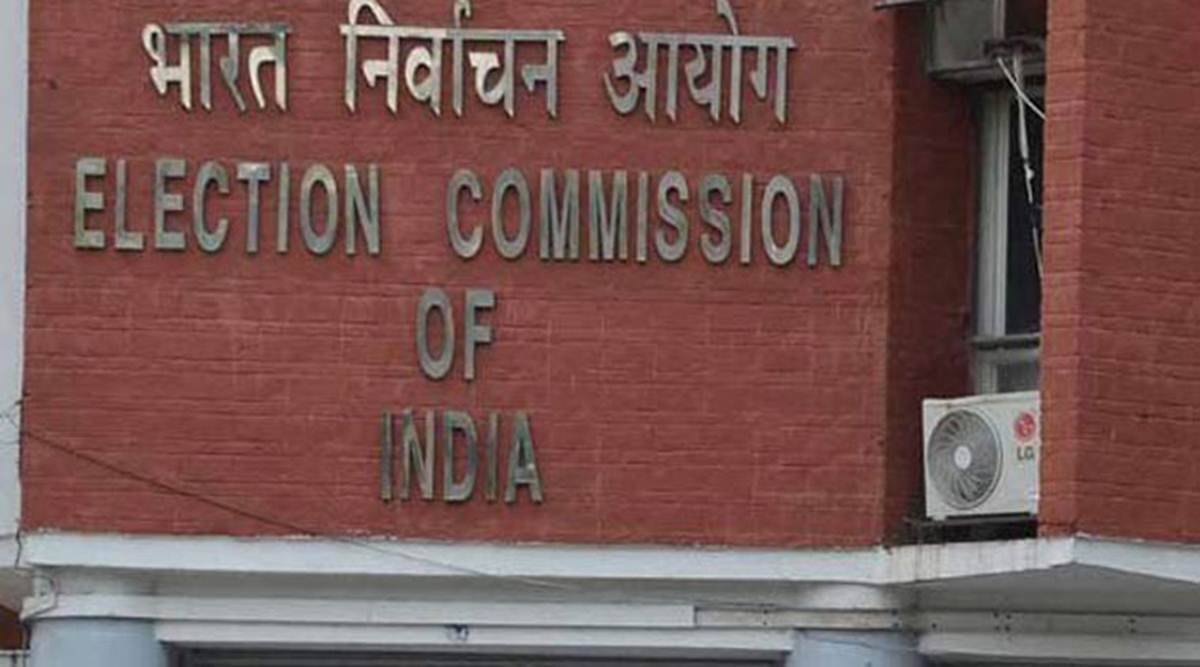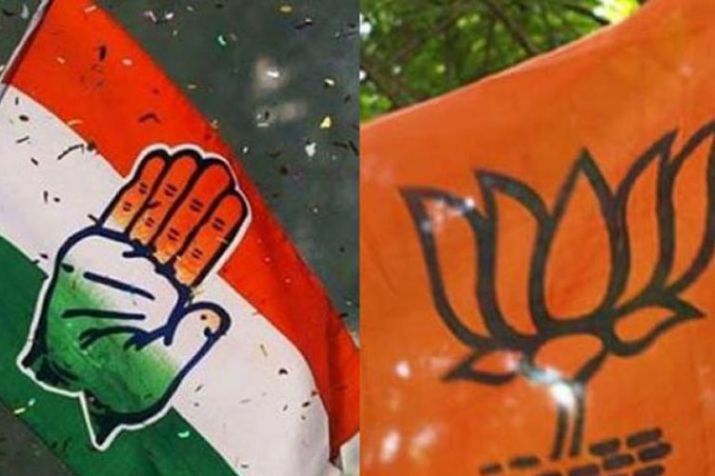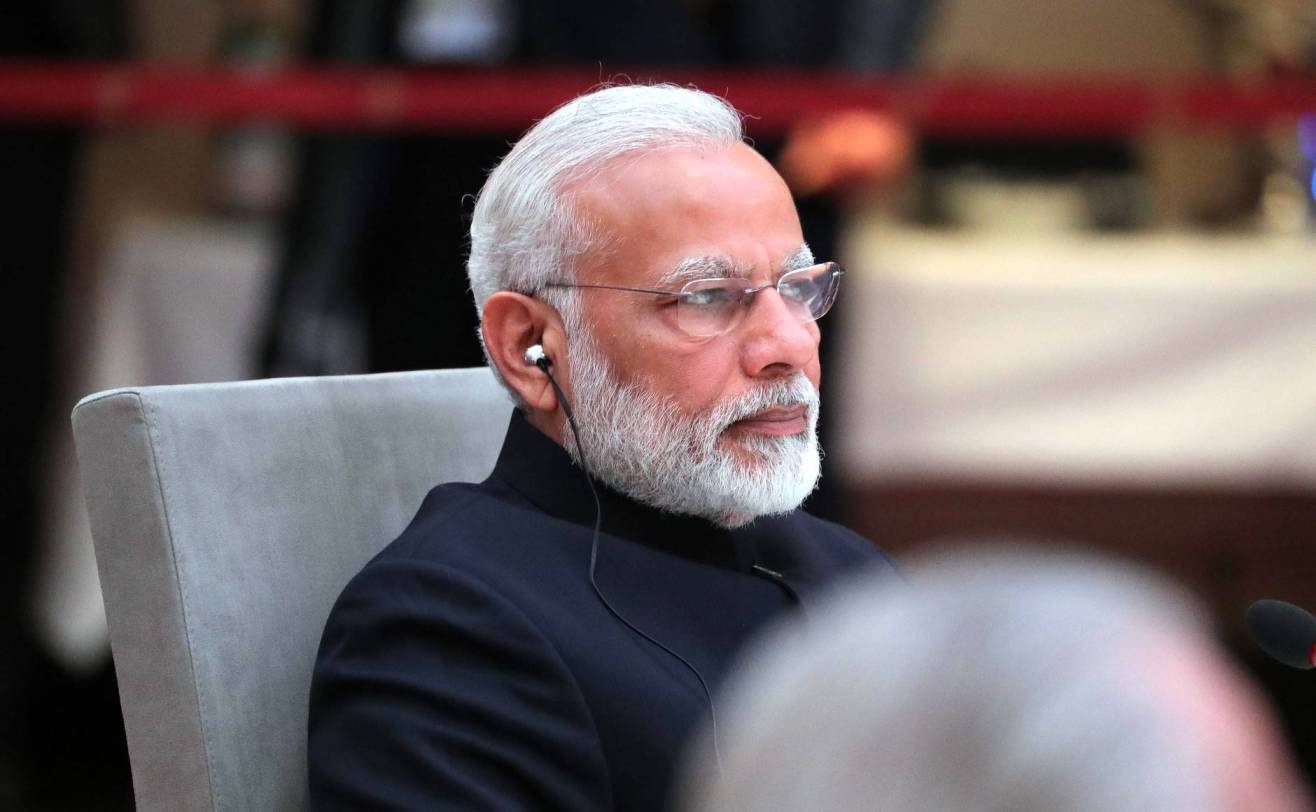India has already suffered a great deal of damage because of freebies. Unfortunately, all the regional parties, and to some extent, the Bharatiya Janata Party and the Congress, indulge in irresponsible populism and mad welfarism. While there can be justification for free education and healthcare, there can be no justification for the distribution of grinders, washing machines, television sets, laptops, subsidised pilgrimages, free electricity, and farm loan waivers.
Freebie culture is blamed on political elites only however, bureaucrats drafting policy are left scot-free. The Judicial system conveniently ignores its responsibility to correct the course since it will displease the political class and of course, the media will never discuss the issue since the government advertisement inflow will be hurt. The poor taxpayers of the country enjoy the visual site of watching their own elected government ripping hard-earned money to be distributed to large sections of the population seeking the comfort of sitting at home since the government has no vision to generate employment for a dignified living. It is all about failed governance and bribing voters to overcome this monumental failure.
Real income growth of the bottom 30% of Indians slowed down from 1992 when India first began ‘opening up’ and ‘liberalising’ its economy by encouraging the private sector. Since everyone has a vote, that means politicians cannot ignore them. This is why they must promise income support or subsidies, whether in cash or kind. These sops ensure that a majority of Indians can stay afloat in a fiercely difficult economic environment. Without this, they might throw governments out of power, or even begin to question what media and public culture feed them. A democracy that is controlled by a corporate-dominated ruling class requires popular support for its rule to continue. The sops and freebies to the poor buy the requisite votes. It is a small price that India’s affluent have to pay to ensure the economy continues to disproportionately reward them.
The political parties in India try to outdo each other in luring the Indian voters with assorted goodies called freebies. This trend has gained more momentum in recent times with the political parties being innovative in their offerings as the ‘traditional free water and electricity is no longer sufficient as election goodies. The political dialogue built around freebies is fraught with danger as it shakes the root of free and fair elections to a large degree. The unviable pre-election promises adversely affect the informed decision-making by voters. This calls for fixing the gaps in the design, execution and accountability of freebie culture.
In fact, the country has already suffered a great deal of damage because of freebies. Unfortunately, all regional parties, and national parties including the Bharatiya Janata Party (BJP) and Congress, indulge in irresponsible populism and mad welfarism. While there can be justification for free education and healthcare, there can be no justification for the distribution of grinders, washing machines, television sets, laptops, subsidised pilgrimages, free electricity, farm loan waivers, and so on. It is not that nobody earlier warned against the consequences of populism. It is a “race to the bottom” and “a quick passport to fiscal disaster.”
FREEBIE THREATENS TO HURT INDIA’S STORY
The results are for all to see. A recent RBI study said, “We can identify a core subset of highly stressed states from among the 10 states identified by the necessary condition i.e., the debt/GSDP ratio. The highly stressed states are Bihar, Kerala, Punjab, Rajasthan and West Bengal.” GSDP is the state GDP. The states with the highest debt-to-GSDP ratio in 2021-22 include Punjab at 53.3%, Rajasthan at 39.8%, West Bengal at 38.8%, Kerala at 38.3% and Andhra Pradesh at 32.4% whereas the Fiscal Responsibility and Budget Management (FRBM) Act recommended a debt-to-GDP ratio of 20% for state governments (40% for the Centre) by the financial year 2022-23. This level of debt is extremely concerning and is largely the result of committed expenditure and subsidies under populist schemes coupled with slow growth in revenues.
Most of the states, however, post a healthy picture of their finances which is aided by the fact that much of the borrowing that funds these freebies happens off-budget, beyond the pale of FRBM tracking. The States borrow on the books of their public enterprises, by pledging future revenues to the State as a guarantee. Effectively, the burden of debt is on the State exchequer, albeit well concealed. The debt-GSDP ratio of Punjab is the worst — and worsening. Instead of being concerned that the state debt to GSDP ratio has not gone below 40% for the past 6 years, the Aam Aadmi Party (AAP) government instead announces that around 51 lakh households won’t pay any electricity bills from September. This is in accordance with the AAP’s election promise of 600 units of free power per billing cycle starting from 1 July 2022.
A case in point is Latin America which provides key learning lessons on populist politics. Populism was active during the 1920s through to the 1970s, when the working poor united behind icons like Brazil’s Getúlio Vargas and Argentina’s Juan Perón over their dissatisfaction with industrialisation. Populist governments resorted to inflationary financing to grant benefits to the poor. By the 1980s, uncontrolled public spending resulted in excessive fiscal deficits, unsustainable public debt and intractable inflation. Latin America’s ‘Lost Decade’ followed. Growth, at 5.6% in the 1970s, shrunk to 1.3% and stagnated for another decade. By the 1990s, inflation had reached 1,000% in countries like Brazil, and the poor suffered exponentially. Large economies including Mexico, Argentina and Brazil languished, and up to half of Latin Americans slid into poverty. It will augur well for India and its political stakeholders to imbibe the lessons of Latin America and how the first generation of fiscal reforms introduced in Latin America introduced political stability in the early 2000s. Going down the same path as Latin America may result in a ‘lost decade’ for India also.
CORRECTIVE ACTION AND STEPS
The problem with freebies is a political one; the way out is simple: all parties (at the Centre and the State level) sit down together and draw a list of don’ts, a negative list of things that none of them would do. With states running astray, it is the responsibility of the Centre to work together with States to advocate fiscal conservatism while ensuring States still retain their freedom in the spirit of Federalism. This requires the Centre to walk a tightrope and requires strong visionary leadership at the helm. More emphasis and confidence should be placed in the legislation already in place to check fiscal spending which is the FRBM Act.
Judicial Intervention: Constructive debate and discussions in parliament are difficult since the freebie culture has an impact on every political party, whether directly or indirectly. Therefore, judicial involvement is required in order to propose measures.
ECI Model Code of Conduct: The Election Commission of India can anticipate enforcing the Model Code of Conduct for Guidance of Political Parties and Candidates effectively to regulate election manifestos in order to prevent the manipulation of informed voter behavior.
ROADMAP
Since getting elected is not a license to kill, the elected representatives must not act arbitrarily. The system of monarchy and practicing democracy have a clear distinction wherein in the latter system, the leader is accountable for all the actions while in the office including the finances and its management. In India, many regional and even national leaders consider themselves the incarnation of god. The reckless way these leaders spend public money is just unacceptable in an orderly society and there have to be reasonable restrictions to be imposed on them while they systematically corrupt the society by offering freebies over quality governance, so as to safeguard the macro interest of the society and the growth of the country.
Prashant Tewari








 OpinionExpress.In
OpinionExpress.In















Comments (0)